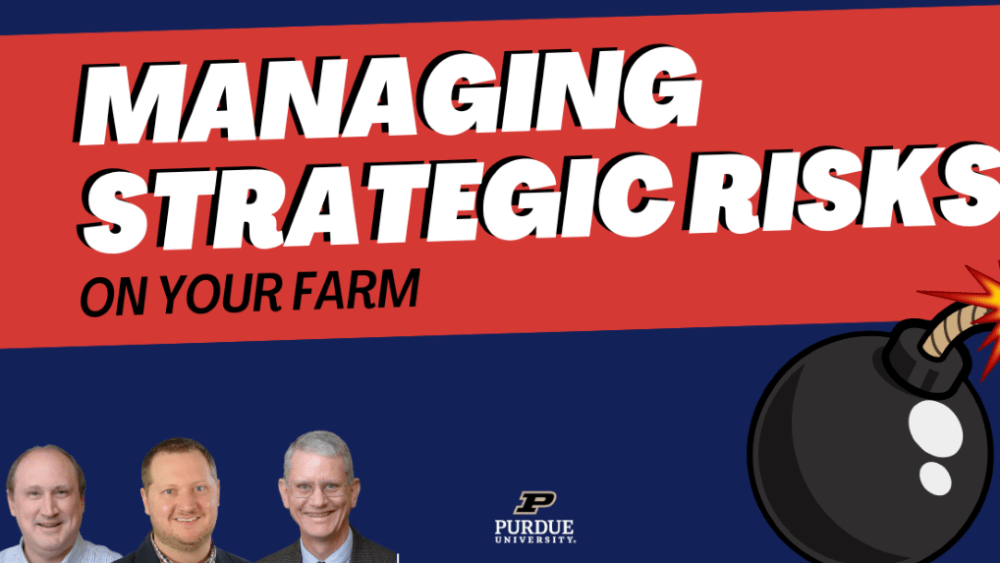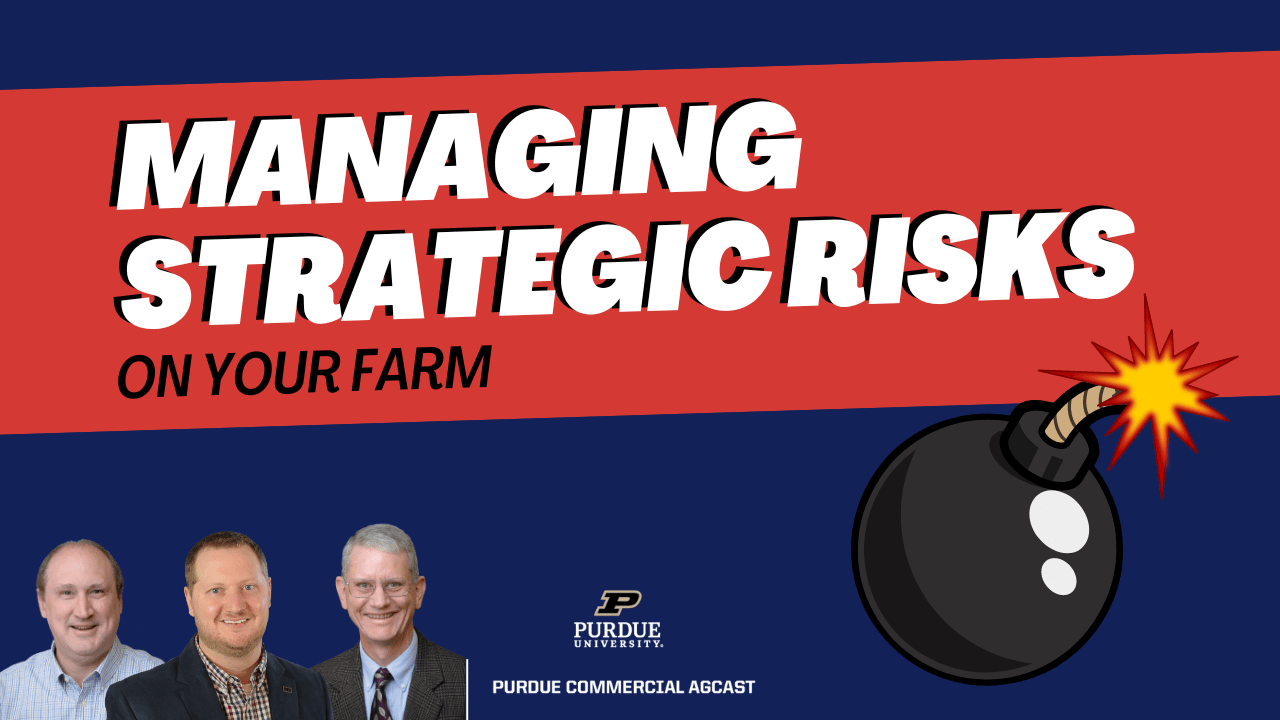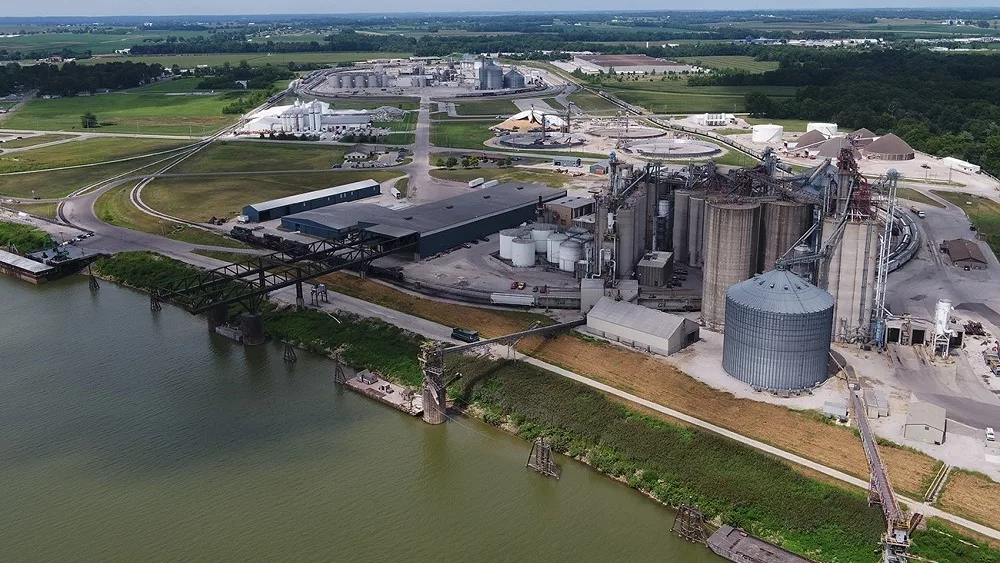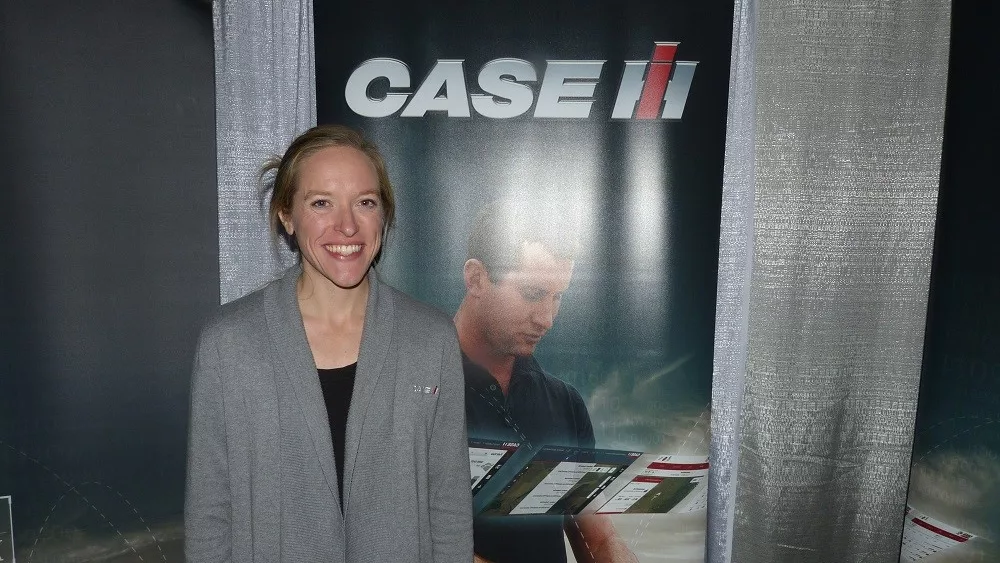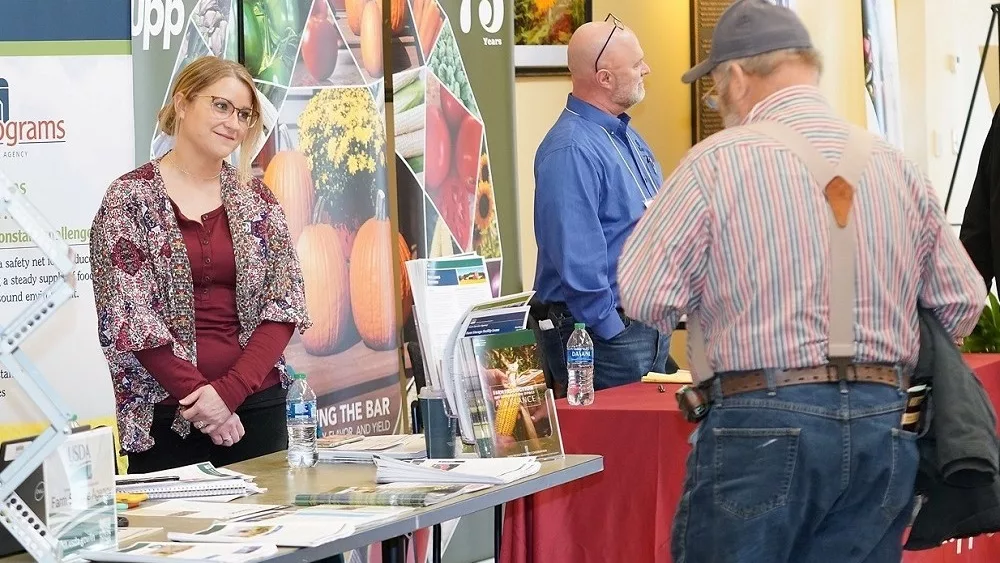You often hear about managing your strategic risk. As a small business, you know that’s important. But what does it really mean? The experts at Purdue give their definition.
“A strategic risk is the risk of being out of strategic position,” says Dr. Michael Langemeier, associate director for the Purdue Center for Commercial Agriculture and professor of ag econ. “And usually when we think about strategic position, we’re thinking about a business plan or a strategic plan. And in that plan, we typically indicate is our goal to be a low-cost producer- to have lower per unit costs than other farms in the industry? Or is our goal to add value- to get a higher price for our products than other farms in the same industry that we’re in?”
Langemeier discusses how different shocks can throw us off our plans. He says those shocks could be external, like governmental policy or like the Russia/Ukraine War.
“The shock can also be internally, and the classic example there is you lose a key member of the team, of the decision-making team, through retirement or leaving the farm or something like that. And so, it can be internally or externally, but that’s what we’re talking about. We talk about strategic risk, how can we ensure that we just keep right on rolling with production if we’re faced with these external or internal shocks?”
Langemeier discusses these shocks and how to best manage your strategic risk in a 3-part podcast series with Dr. Jim Mintert, director of the Purdue Center for Commercial Ag as part of their Purdue Commercial AgCast.
“We’re not talking about forecasting necessarily what that strategic risk is,” Mintert says. “It’s an idea about managing your business in a way that you can weather strategic risk, and it could be a variety of different things. It’s useful to think about some of the possibilities that could happen.”
Langemeier answers, “It’s not forecasting, and it’s not predicting. You can’t you often, if ever, predict a strategic shock, either externally, internally and so, you’re right, Jim, you’re thinking about, how would I respond to a shock?”
Tune in to the Purdue Commercial AgCast below as they go through different scenarios to help you prepare for some of those potential shocks.

